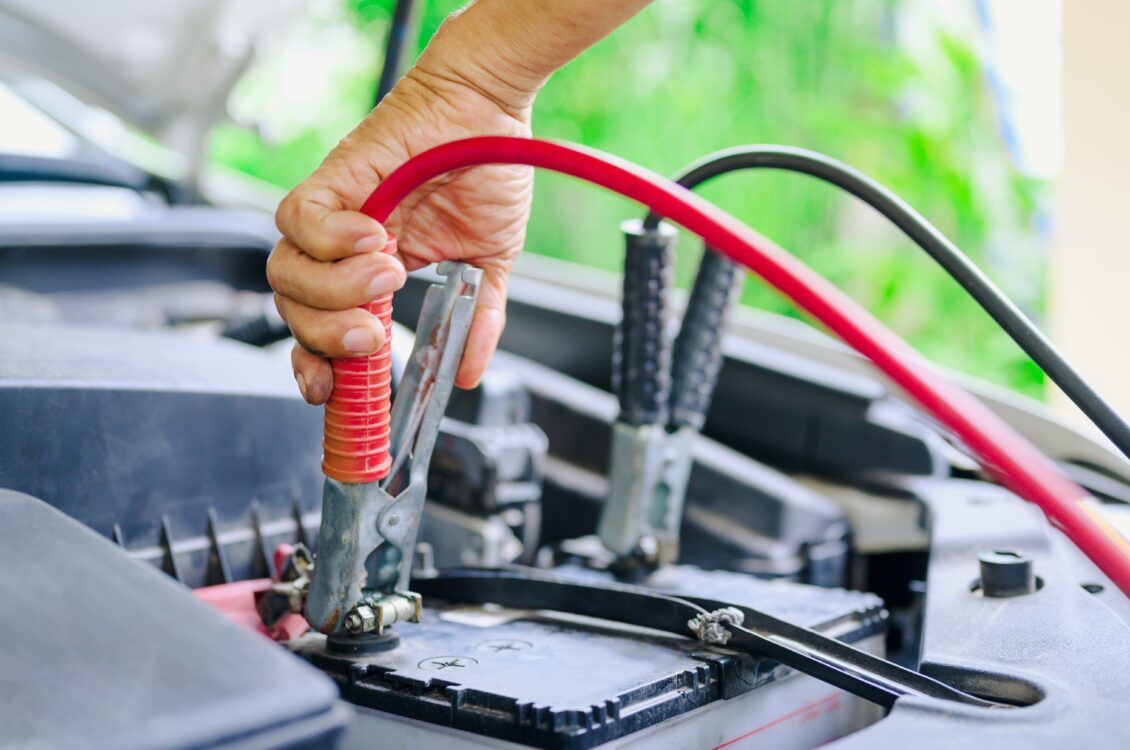Why Does My Car’s AC Smell Like Vinegar


Why does my car AC smell like vinegar?
The pungent smell of vinegar emanating from your car’s AC could be a sign of bacterial growth in the evaporator coil. This can happen when moisture gets trapped and creates a suitable environment for bacteria to flourish. The bacteria produce an acidic odour, often reminiscent of vinegar. It is essential to address this issue promptly, as inhaling the bacteria-laden air can lead to respiratory problems.
In addition to the unpleasant smell, other symptoms that indicate bacterial growth include reduced cooling efficiency and unusually high humidity levels inside the car. Regular maintenance, such as replacing air filters and cleaning your AC system, can help prevent bacterial growth.
Ignoring this problem could lead to more severe issues like mould and mildew formation, which not only affect health but also damage the internal components of your car’s AC.
To ensure a healthy and pleasant driving experience, it is crucial to schedule routine maintenance checks with certified technicians. They have the necessary expertise and equipment to identify potential issues and provide comprehensive solutions that keep your car AC smelling fresh and functioning optimally.
Causes of vinegar-like smell in car AC
To identify the root cause of the vinegar-like odour that your car AC emits, you need to understand the possible sources of the smell. To get rid of this unpleasant smell, we will explore the accumulated moisture in the AC system, mould or bacterial growth in the AC system, dirty or clogged air filters, leaking refrigerant, and the chemicals used for car cleaning, which could be the culprits behind the odour.
Accumulated moisture in the AC system
The presence of moisture in the car AC system can lead to a vinegar-like smell that can be off-putting for passengers. The humidity in the air can condense on the evaporator coil and accumulate within the system. This accumulation of moisture creates a favourable environment for bacteria and mould to grow.
As these microorganisms thrive, they release volatile organic compounds that create an unpleasant odour reminiscent of vinegar. This is particularly true when the air conditioning is first turned on, as the moisture has had time to accumulate during periods of non-use.
One way to prevent this problem is by regularly maintaining your car’s AC system. Turning off the AC a few minutes before you reach your destination allows excess moisture to evaporate from the system, inhibiting bacterial growth. Additionally, replacing filters and cleaning out AC ducts removes any existing buildup and improves overall air quality.
Don’t let accumulated moisture in your car’s AC system ruin your passenger’s experience. Take action now by implementing proper maintenance techniques and ensuring optimal performance of your vehicle’s cooling system.
Mold or bacterial growth in the AC system
The presence of a strong vinegar-like smell in a car’s AC system could be due to the growth of moulds or bacteria in the ductwork, evaporator core, or condenser. The prolonged use of an AC system can cause moisture buildup within the components, which fuels mould and bacterial proliferation. These microbes produce unpleasant odours that circulate inside the car when the air conditioning is switched on.
To resolve this issue, periodically cleaning and disinfecting the AC system is essential. A professional service provider can remove contaminants and treat the ducts with antimicrobial agents, ending mould and bacterial growth while limiting odour production.
Using quality cabin air filters also helps prevent microbes from settling into crucial components such as the evaporator core and condenser. Fitting this filter helps to improve indoor air quality by blocking pollen, dust particles, and bacteria while removing other harmful contaminants that could grow to generate stubborn smells.
It’s critical to note that driving with windows opened keeps humidity levels low inside the car, preventing microbial growth better than keeping everything shut. Fix leaks as soon as possible when detected; doing so will help reduce any potential for moisture buildup that would trigger bacterial proliferation and odour production.
Regular maintenance can prevent mould and bacterial proliferation inside a car’s AC system by ensuring the proper functioning of all parts. Striped-down pieces are fixed back where they belong with no room for any possible migration. Thus allowing fresher, cleaner, and healthier air for all occupants therein.
Dirty or clogged air filters
When the quality of air inside a car is compromised, it could be due to obstructed or unclean filters that clog the air conditioning (AC) system. Filters function as purifiers and stop pollutants from entering the vehicle. When they become filthy or blocked, air is not correctly circulated through the AC system, resulting in poor air quality.
Here are six points explaining how dirty or clogged air filters affect AC systems:
- Restricted flow of air: Inadequate circulation of air causes stale and saturated odours to linger in the vehicle.
- Moist environment: Pollen, dust particles and debris trapped in the filters can create a humid environment that transforms into mould thus contributing to a rancid vinegar-like smell when AC is turned on.
- Worsening of respiratory problems: The unpleasant odour irritates those with existing breathing issues such as asthma, severely affecting their lungs by aggravating allergies and inducing coughs.
- Reduced efficiency of engine power: A shortage in cabin airflow suppresses optimal engine output; hence reducing energy-efficiency leading to frustration’s prolonged idle times while idling in traffic.
- Drying out of o-rings: Clogged filters also inhibit lubrication resulting in crack development on o-rings due to amplified frictional force, leading to leakage among others.
- Alteration of refrigerant’s chemistry: Excessive moisture transformed into acids by bacteria accelerates corrosion found within AC parts such as condenser coils and evaporators resulting in higher maintenance costs.
Hence, it is advisable to schedule regular filter replacements and cleaning services inclusive of ensuring efficient working capability for smooth operation.
Replacing polluted filters means improved ventilation with fresh incoming air that helps eliminate obstructing particles. It allows optimal performance without impeding an energy-efficient outcome by providing excellent indoor ambient temperature, dry interior environments, and improved fuel economy, thanks to smoother engine operation.
Leaking refrigerant
If the air conditioning in your car emits a vinegar-like smell, there may be a refrigerant leak. Refrigerant leaks can occur due to a variety of reasons such as damaged pipes or connectors, worn-out gaskets, and loose fittings at the compressor. If left untreated, the loss of refrigerant can result in further damage to your vehicle’s AC system and increase repair costs.
To address a refrigerant leak, it is important to first locate the source of the leak. This can be done with the help of specialized tools by qualified technicians. Once identified, the technician will repair or replace any damaged components that are causing the leak. It is also recommended to recharge the AC system with coolant after fixing any leaks.
In some cases, if bacteria growth has occurred due to moisture present around areas where refrigerant has leaked, then this can also cause a musty smell in addition to a vinegar-like odour.
If you continue to experience issues with your car’s AC system despite getting it fixed, consider taking it for regular maintenance checks and cleaning of air filters to minimize potential sources of odours in your car.
Chemicals used for car cleaning
The substances utilized for sanitizing the internal and external of an auto are a crucial aspect when it comes to automobile maintenance.
- Interior cleaning involves solvents like alcohol, ammonia, and detergents to remove stains and release odours trapped inside the car.
- The exterior cleaning utilizes products like acidic wheel cleaners for removing brake dust, and tar removers for taking out any foreign matter stuck on the surface.
- Car wax is used to keep the paint area protected from external elements such as the sun and weather conditions
- In addition, specialized cleaning chemicals are used in specific parts – vinyl or leather conditioners ensure that these materials stay clean over time.
Using an adequate amount of chemical detergent is highly advised, as using incompetent amounts will make your automobile more susceptible to breakages.
Additionally, according to Consumer Reports research conducted in August 2021, Mercedes-Benz uses hazardous chemicals and unsatisfactory EV batteries.
Tips to get rid of vinegar-like smell in car AC
To get rid of the unpleasant vinegar-like smell in your car AC system, follow these tips for a fresh and comfortable driving experience. Clean and disinfect the AC system, change air filters regularly, avoid chemical cleaning products, and opt for professional AC inspection and maintenance.
Cleaning and disinfecting the AC system
AC System Sanitization Tips
To get rid of the vinegar-like smell in your car AC, cleaning and disinfecting the AC system is essential. Neglecting this issue can lead to respiratory problems and sour smells.
Here’s a 6-step guide to sanitize your car’s AC system:
- Locate the cabin air filter under the dashboard
- Remove and examine it for replacement or cleaning
- Clean the filter with a vacuum or replace it
- Use an AC vent cleaner to spray into your ducts
- Run your air conditioning on high for 10-15 minutes
- Get interior detailing including upholstery sanitation, if needed
After following these steps, your car’s environment will be safe, cozy, and odour-free. Make sure to clean your AC system every six months to maintain fresh air quality in your vehicle.
Don’t let the vinegar-like smell take over. Regular cleaning of the AC system is crucial. Take action now to avoid any potential health risks and ensure a comfortable ride for you and your passengers.
Changing air filters regularly
Regular replacement of air filters is crucial in preventing the vinegar-like smell in your car’s AC system. Dirty or clogged filters can trap moisture, bacteria and other contaminants that emit an unpleasant odour.
To avoid this problem, consider checking and replacing your air filter every six months or according to the manufacturer’s recommendations. This will keep your car’s AC running smoothly while ensuring fresh and clean air circulation.
In addition, make sure to use manufacturer-approved filters that fit your specific make and model of car. This guarantees that it traps and removes particulate matter from the air before it reaches the HVAC system.
Maintaining good indoor air quality is essential as drivers spend a significant amount of time in their cars. Neglecting proper maintenance of AC systems can lead to health hazards such as respiratory issues.
According to AAA Newsroom, “Airborne pollutants may increase allergy symptoms and aggravate asthma in individuals with pre-existing conditions.” Regular replacement of air filters is a sure way to keep these allergens away from the interior of your vehicle, thus improving overall comfort when driving.
Avoiding chemical cleaning products
Using Natural Cleaning Agents to Prevent Unwanted Chemical Exposure
Chemical cleaning products can not only be harsh on the environment but also hazardous to health. Instead, natural cleaning agents like vinegar, baking soda and essential oils can disinfect and provide a fresh aroma without being harmful.
Regular Maintenance with DIY Methods
Regular maintenance of your car’s air conditioning system is crucial in avoiding any unpleasant smells. DIY methods like cleaning or replacing the cabin air filter will prevent any bacteria and mould from spreading, causing unwarranted odours.
Adding Fragrances to Keep the Car Fresh
Adding fragrances to your car can mask any undesirable smell while providing a pleasant ambience. Essential oils like lavender, peppermint or eucalyptus oil are natural options that eliminate smells without toxic chemicals.
Consider Professional Cleaning Services if Smells Persist
If you have tried all possible alternatives but still cannot get rid of the odour, then it might be time to seek professional assistance. Trained experts equipped with specialized tools can clean out debris and disinfect the car’s AC system effectively.
Professional AC inspection and maintenance
Regular maintenance of your car’s air conditioning system is crucial to keep the vinegar-like smell at bay. Adequate inspections and upkeep of the AC system will prevent unpleasant odours, mould growth and even health hazards. During an AC inspection, a professional technician evaluates refrigerant levels, checks for leaks, examines the compressor belt, cleans or replaces the filter and performs other necessary repairs.
In addition to regular maintenance, using a high-quality cabin air filter can reduce bad odours and pollutants in the vehicle’s interior. Moreover, turning off the AC five minutes before reaching the destination allows enough time for the AC components to dry up and prevents moisture buildup. This simple step can help eliminate nasty smells from accumulating in the ventilation system.
Another way to keep your car smelling fresh is by using natural odour-absorbing materials such as activated charcoal bags or sachets filled with baking soda placed in various areas inside your vehicle. These materials are affordable and effective at trapping unpleasant smells.
Regular inspection and maintenance of your car’s air conditioning system coupled with a few additional steps go a long way in ensuring that your vehicle smells pleasant throughout the year.
Prevention methods to avoid vinegar-like smell in car AC
To prevent that pesky vinegar-like smell in your car AC, follow our prevention methods with regular maintenance and cleaning, avoiding moisture buildup, and using natural air fresheners. We’ll explore each sub-section in detail to help you keep your car smelling fresh and clean.
Regular AC maintenance and cleaning
Regular upkeep and maintenance of your car’s AC system are essential to avoid any unpleasant vinegar-like odour. Here’s a comprehensive guide to keep your car AC smelling fresh all the time.
- Replace or clean the air filter regularly – A dirty or clogged air filter can cause a musty smell from your car’s AC system. Make sure to replace or clean it every 12,000 miles.
- Clean the evaporator coil – The evaporator coil in your car’s AC system can also accumulate dirt and debris, causing a bad smell. Use an appropriate cleaner to clean the coil once every year.
- Clean the condenser fins – Dust, debris, and other contaminants can collect on the condenser fins over time, causing poor cooling performance and bad odours. Spray water on them using moderate pressure to remove dirt buildup.
- Check for leaks – Leaks in the refrigerant or other parts can also contribute to a foul smell from your car’s AC. Get them fixed immediately by a professional mechanic.
- Run the AC on high mode periodically – Turning on the AC on high mode once a week for at least ten minutes will help dry out any excess moisture in the system that leads to mould growth.
- Use an air freshener – Using an air freshener inside your car is also helpful in masking any unpleasant odour coming from your AC system.
Additionally, ensure proper ventilation of your car while driving as it reduces humidity levels inside that may lead to mildew build-up.
Fact: According to the U.S. Occupational Safety and Health Administration (OSHA), “Indoor air pollutants are two to five times higher than outdoor pollutants.”
Avoiding moisture buildup in the car
To prevent the accumulation of moisture in the car, various methods and precautions can be taken. These steps can help to avoid unpleasant odours in the car.
Here is a 4-step guide for preventing moisture buildup in your vehicle:
- Keep your windows clean and clear to reduce condensation. Dirty windows result in moisture buildup, which releases a vinegar-like smell once an HVAC system gets operational. Therefore, cleaning windows ought to be on top of your priority list.
- Eliminate clutter in the car. Clutter creates pockets where humid air can get trapped and accumulate without proper exit routes resulting in musty smells. In regularly cleared cars, you’re less likely to encounter issues with moisture buildup.
- Use moisture eliminator or absorber bags appropriately – they are designed explicitly for removing excess humidity from confined spaces/airtight environments pretty effectively without leaving any residue behind.
- Avoid storing damp items like towels/sports gear in your car as it encourages mold growth key ingredient for producing pungent smells inside automobile cabins.
It’s essential to understand that cars have a closed system cabin with minimal ventilation that locks away most incoming air if left trapped inside causing high humidity levels eventually leading to smelly situations if not resolved immediately.
Always park your car and reverse first into busy streets allowing wind to flow through interiors while driving later opening all windows one by one removing those smells before it gets too late.
By following these prevention measures, you can avoid unpleasant vinegar-like odours from accumulating in the AC system of your vehicle. Incorporating these suggestions will also provide overall freshness within the enclosed space regardless of weather conditions outside.
Using natural air fresheners in the car
Using organic scents in your car is an effective way to prevent vinegar-like odours from your AC system. Here are some tips:
- Hang a freshener made of natural materials like dried flowers, herbs or essential oils
- Use bamboo charcoal bags which help absorb smell and moisture
- Place citrus fruits in the car; orange peels release a fresh aroma
- Create sachets filled with baking soda, coffee grounds, or cinnamon sticks
- Spray distilled water mixed with essential oils on the seats for a pleasant scent
- Clean the car regularly, especially carpets and seats.
In addition to preventing bad odours, using organic air fresheners contributes to creating a clean and safe environment for yourself and your passengers.
To avoid being left with unpleasant smells inside the vehicle, using natural air fresheners can have immediate effects that improve both mood and wellness. Invest in such products and enjoy your driving sessions without discomfort or embarrassment.
Why Does My Car’s AC Smell Like Vinegar – Conclusion: Eliminating the vinegar-like smell in car AC is crucial for a comfortable and healthy driving experience. Proper prevention and maintenance can help to avoid this issue.
Having a vinegar-like smell in your car AC can be unpleasant and harmful to your health. Regular maintenance and prevention practices can help prevent this issue and ensure you have a comfortable and healthy driving experience.
The unique smell in your car AC could be due to mould or bacteria growth, dirty air filters, or a clogged drainage system. As a result, it is crucial to clean the air filters regularly, dry off the evaporator coils after use, remove any debris that may accumulate in the system, and change the cabin air filters every 12-16 months.
Neglecting to take these steps can lead to respiratory problems caused by inhaling mould spores or contaminated air from bacteria growth within the car’s HVAC system. In addition, allergies and asthma symptoms could get worse if left unchecked.
To avoid such incidents, it is essential to maintain your car’s air conditioning unit regularly. Schedule regular inspections with an automotive technician who will ensure you take preventative measures that will not only increase comfort but also enhance safety on the road. Don’t wait until symptoms worsen; act now!
Why Does My Car’s AC Smell Like Vinegar – Frequently Asked Questions
Q: Why does my car AC smell like vinegar?
A: The most common reason for a vinegar-like smell coming from your car AC is the growth of mould or bacteria in the air conditioning system. This can happen when moisture builds up in the system, creating a breeding ground for microorganisms.
Q: Is the smell harmful?
A: In most cases, the vinegar-like smell from your car AC is not harmful. However, if the smell is extremely strong or is accompanied by other symptoms such as coughing or difficulty breathing, it may be a sign of a more serious issue. If you are concerned, it’s always best to have your car checked by a professional.
Q: Can I fix the problem myself?
A: There are some home remedies you can try to eliminate the vinegar-like smell in your car AC, such as cleaning the air filter or running the AC on high for some time. However, if the problem persists, it’s best to take your car to a professional for a more thorough cleaning and inspection.
Q: How can I prevent the smell from coming back?
A: The best way to prevent the growth of mould and bacteria in your car AC is to use it regularly and replace the air filter at least once a year. In addition, keeping your car clean and dry can also help to reduce the moisture that can lead to odour buildup.
Q: Will the smell go away on its own?
A: In some cases, the vinegar-like smell from your car AC may go away on its own if you don’t use the AC for a while or if you run it on high for an extended period. However, if the smell persists, it’s best to have your car checked by a professional.
Q: How much does it cost to clean the car AC?
A: The cost of cleaning your car AC can vary depending on the severity of the problem and the type of cleaning required. On average, a basic cleaning can cost around $100, while a more thorough cleaning can cost up to $400 or more.










